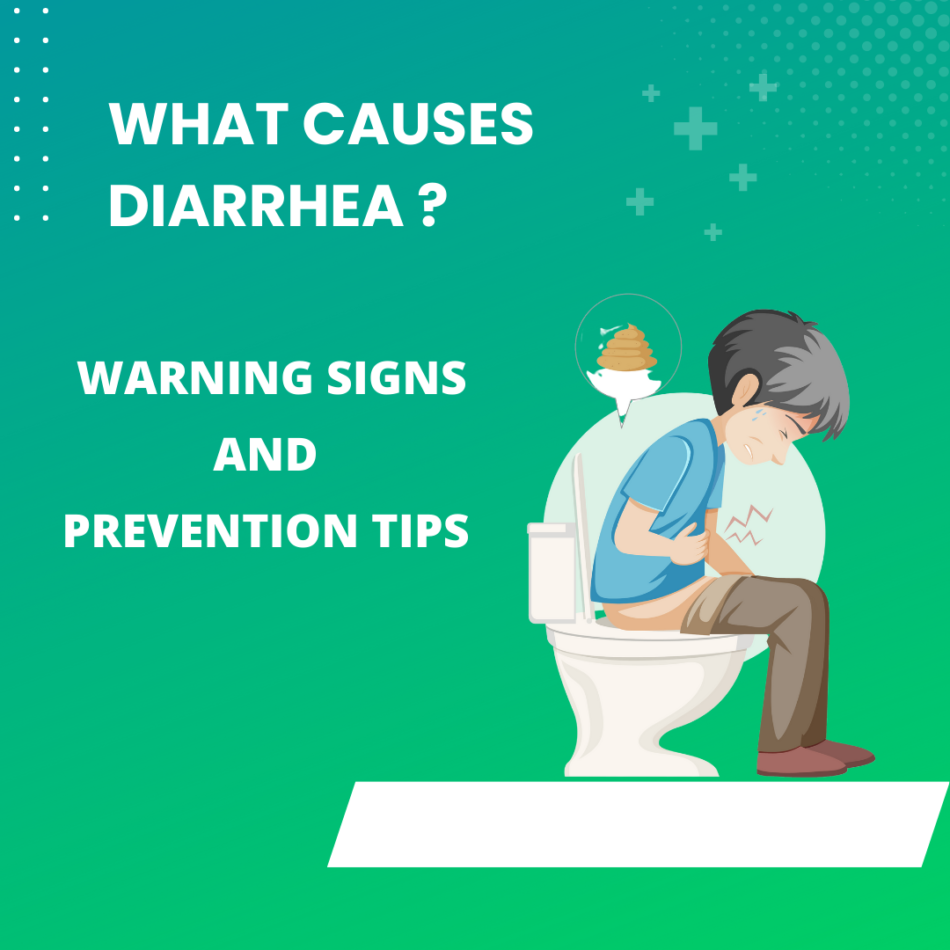
Know the warning signs and preventative tips for diarrhea!
From symptoms to treatments, learn all you need to know in this comprehensive guide.
Diarrhea is a condition that is characterized by loose, watery stools that occur more frequently than normal. Other symptoms of diarrhea may include:
- Abdominal cramps and pain
- Nausea and vomiting
- Urgent need to have a bowel movement
- Bloating and gas
- Dehydration, which can cause symptoms such as dry mouth, thirst, dark urine, fatigue, and dizziness.
In addition, if diarrhea is caused by an infection or other underlying condition, other symptoms may also be present. For example, if diarrhea is caused by a bacterial infection, symptoms may include fever, chills, and bloody stools. If diarrhea is caused by a viral infection, symptoms may include headache, muscle aches, and fever. In addition, if you notice blood in your stools, have a fever, or experience severe abdominal pain, seek immediate medical attention as these symptoms may be indicative of a more serious condition.
Diarrhea is a common digestive problem and can be caused by a wide variety of issues. Find out about the warning signs, as well as prevention tips, to help reduce the severity and duration of your symptoms. Learn about treatments, including over-the-counter medications and dietary changes that may help you feel better.
What Causes Diarrhea?
Diarrhea is mostly caused by a variety of factors. Some of the most common causes include bacterial or viral infections, food intolerances, parasites, reactions to certain medications, and chronic illnesses such as Crohn’s disease or irritable bowel syndrome. Stress and poor diet can also play a role in triggering diarrhea episodes.
Symptoms and Warning Signs of Diarrhea.
Look out for frequent loose and watery stools, excessive abdominal cramping, urgency and difficulty controlling bowel movements, nausea, vomiting, bloating, anorexia or decreased appetite. You may also experience fevers and chills depending on the cause of your diarrhea. If your symptoms persist or worsen after a few days, seek medical attention as soon as possible.
Prevention Tips to Avoid Diarrhea.
Diarrhea can be an uncomfortable and even dangerous condition, but there are preventative measures that may help limit your exposure. Always wash your hands with soap and water before eating meals or snacks, and avoid contaminated food, drinks, and raw or unwashed fruits or vegetables. Additionally, always cook meat thoroughly and drink only pasteurized dairy products. If you have to travel in areas where food and cleanliness are highly questionable, bring water purification tablets and make sure you always have a personal supply of clean drinking water with you.
Treating Acute Cases of Diarrhea Safely.
If you find yourself suffering from acute cases of diarrhea, it is important to take preventative measures while treating the condition. Don’t forget to stay hydrated your body and necessary to take enough rest. Keep in mind that electrolyte solutions, probiotics and prescription medications are all options if your symptoms do not improve. Additionally, it may help to consume foods that provide healthy carbohydrates that will replenish your energy stores while providing some nutrition. Choose items like oatmeal, boiled potatoes or bananas and other similar items with these properties.
How to Manage Chronic Diarrhea Conditions Safely and Effectively.
If you suffer from chronic diarrhea, it is important to understand the underlying cause of your condition and how best to manage it. For example, if you have inflammatory bowel diseases such as Crohn’s or ulcerative colitis there will be specific steps for you to take in order to control gut symptoms. This may include taking medications recommended by your doctor and following a recommended diet plan. Additionally, lifestyle choices like quitting smoking and avoiding caffeine can help reduce the risk of flare-ups. Consulting with a nutritionist or medical professional is wise when managing chronic conditions and can help give you the best chance at remission.
Article Tags:
Abdominal cramps · anorexia · Bloating · bowel movement · Diarrhea · digestive problem · gas · illnesses · Nausea · Poor diet · vomitingArticle Categories:
Disease







